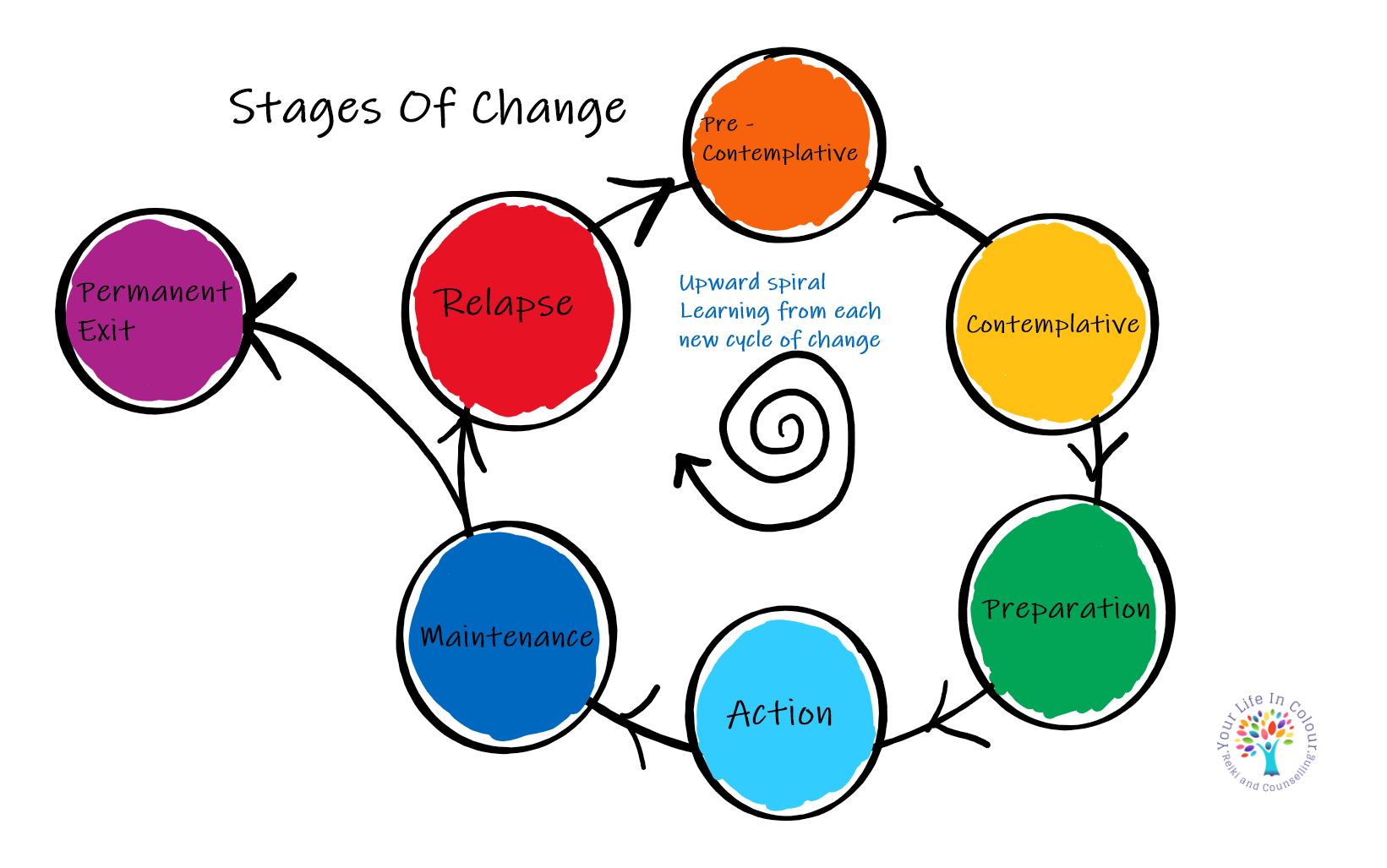Change. A message from a Counsellor.
I know walking through the door to therapy can be scary, I have been there. All the little voices that pop up - “I’ll be ok”, “Things will get better if I just….”, “I just need a break”, “I can work it out myself”, “I’ll start tomorrow”. What’s great about these comments, is they may be true and be the great motivator of self-directive advise needed for change.
Change motivated by your inner knowing may be considered from what you know has worked before. For example, you may know that when you take a walk for 30 minutes 3 to 4 times a week, you have more physical energy and mental clarity. The idea is to repeat what has worked for you in the past. Change from a new starting point can be a little more challenging and at times you may need more information or motivation to get started. There will be times when nothing you try is helping or shifting, and you have exhausted your self-directed resources for sustained change.
You can't do the same thing and expect a different result.
How do you determine what stage of change you are in?
Here's a little metaphor to consider.
Pre-Contemplative Stage:
A person walked into a bar to see a man walking in circles on the spot. The person says to the barman “Why is the man walking around in circles?” The barman replied, “Because his foot is nailed to the floor.” The person perplexed asked “Why doesn’t he remove the nail?” The barman responded, “It doesn’t hurt enough yet.” The man overhearing the conversation considered ‘There’s a nail?’
Contemplative Stage:
The man moving in circles stops, looks down at his foot and comments “Gee that’s annoying, all I can do is walk around in circles.” The man tries to lift his foot from the floor, winces, and leaves it alone. He then rationalises, “It’s not all that bad, at least I can see out the window”. The person standing at the bar moves to speak with him, “That looks painful. Wouldn’t you like to be able to go outside, instead of just seeing through the window?” The man considers this saying “Well, I would like to go outside, it would be scary but fun, I suppose. “And I am tired of walking around in circles.”
Preparation Stage:
The person commented on how he had known other people that had sought help for similar concerns. The man now curious asked the man whether he would be able to tell him about where to seek help. The person suggested the man call and speak about what’s happening for him, so they created a plan to help the man contact support.
Action Stage:
In readiness to be free from the nail, the man worked with supports to overcome the challenges that led him to having a nail in his foot. The more that the man spoke, the more he felt the pain in his foot and desired more and more to be free from the nail. Then, one day, the nail loosened, and the man’s foot became free. The man called out “I feel lighter” as he tried some new styles of walking, running, jumping and skipping.
Maintenance Stage:
The man knew he did not want to be back walking in circles, so each day he implemented new ways of being that he had learned and focussed less on the old ways in which he knew before. When he was able to do this regularly, he noticed feeling happier in himself and more accomplishment and growth.
Lapse Stage: (little slips)
At times when he noticed he was starting to walk in circles, he would remind himself of the positives for maintaining the new ways of being and followed his new ways of being.
Relapse Stage: (at times this happens)
Some days were challenging and on occasion he felt himself slip a little into old behaviours. He started to visit the bar and notice he would walk around in circles. The barman called to him “What are you doing? I thought you said you would not walk in circles anymore?” Feeling shame, the man started to pace left and right, so as not to repeat the old pattern of walking in circles. It was here a new less positive behaviour was established, and further support was required.
Permanent Exit Stage:
The man walked past the bar all the way to the park. The new behaviour changes that he had developed, implemented and repeated had become unconscious actions thereby replacing his old and unhelpful behaviours.
Remember, if you change nothing, nothing changes.
Seeking a therapist for counselling that can assist you starts with your desire and readiness to change. It may feel uncomfortable, but is the comfort zone you are in really that comfortable? Having a trusted counsellor that will listen, support, encourage, and invite you to challenge yourself is an asset. We are ready when you are.


